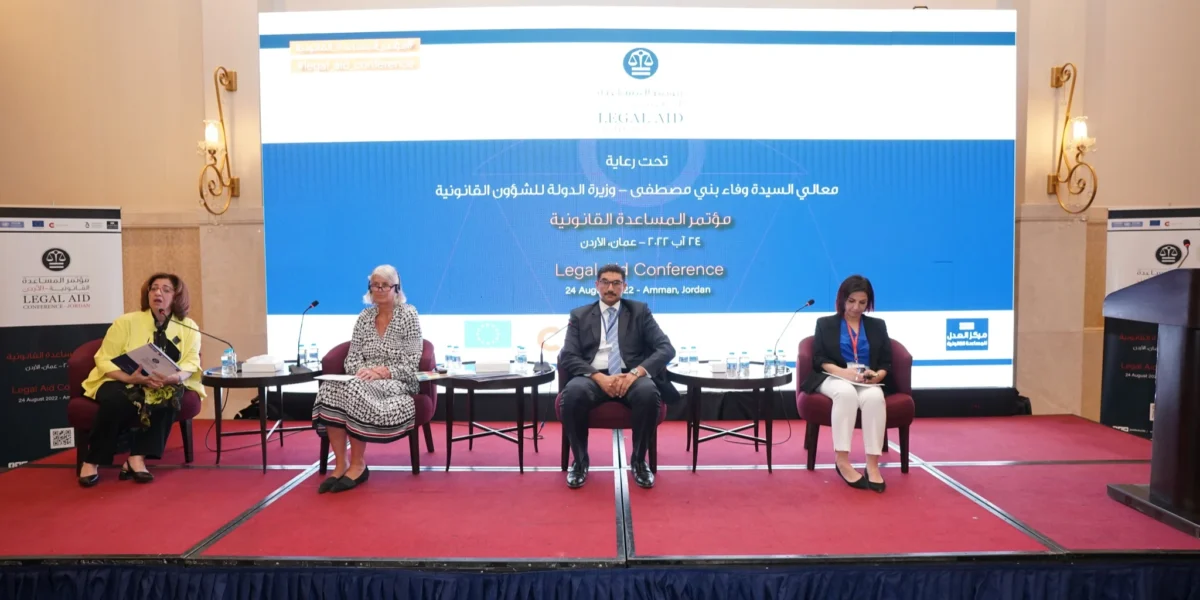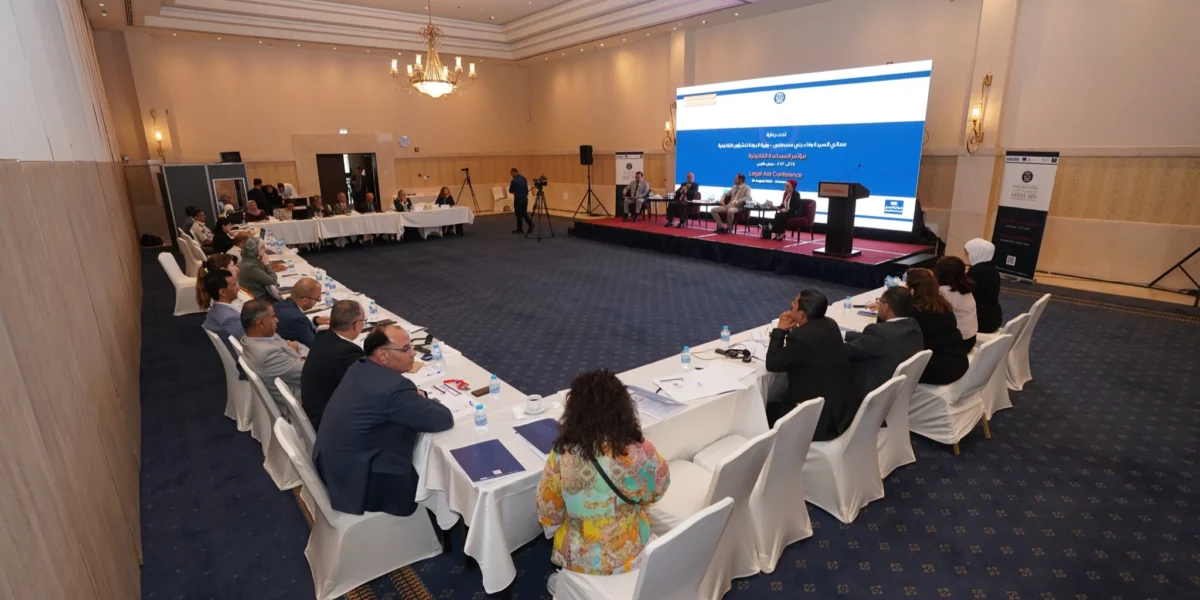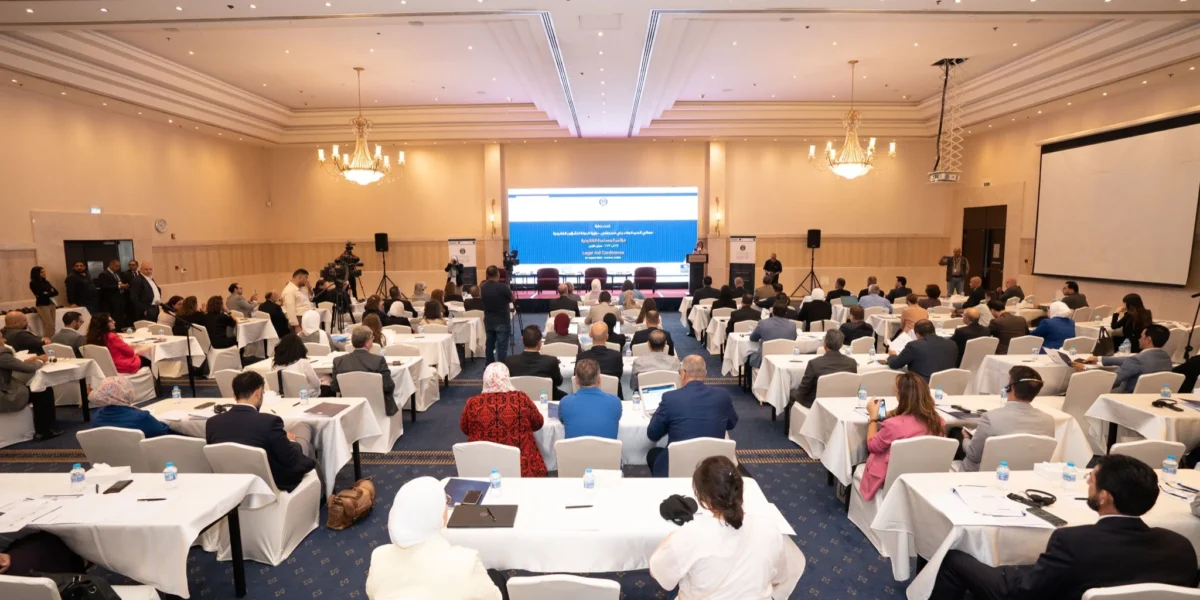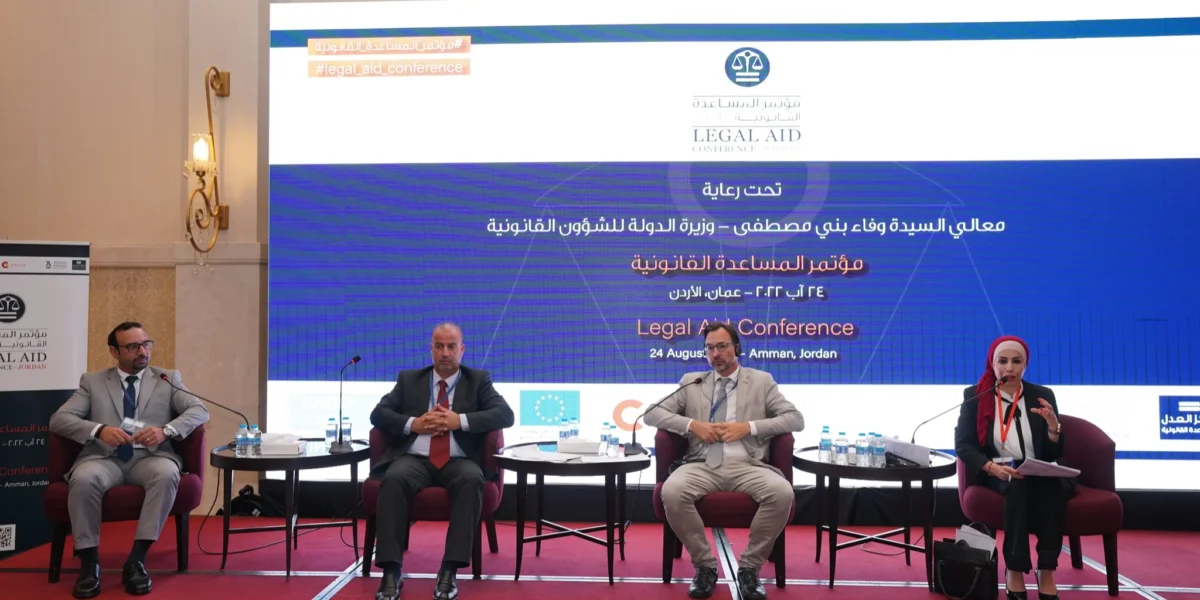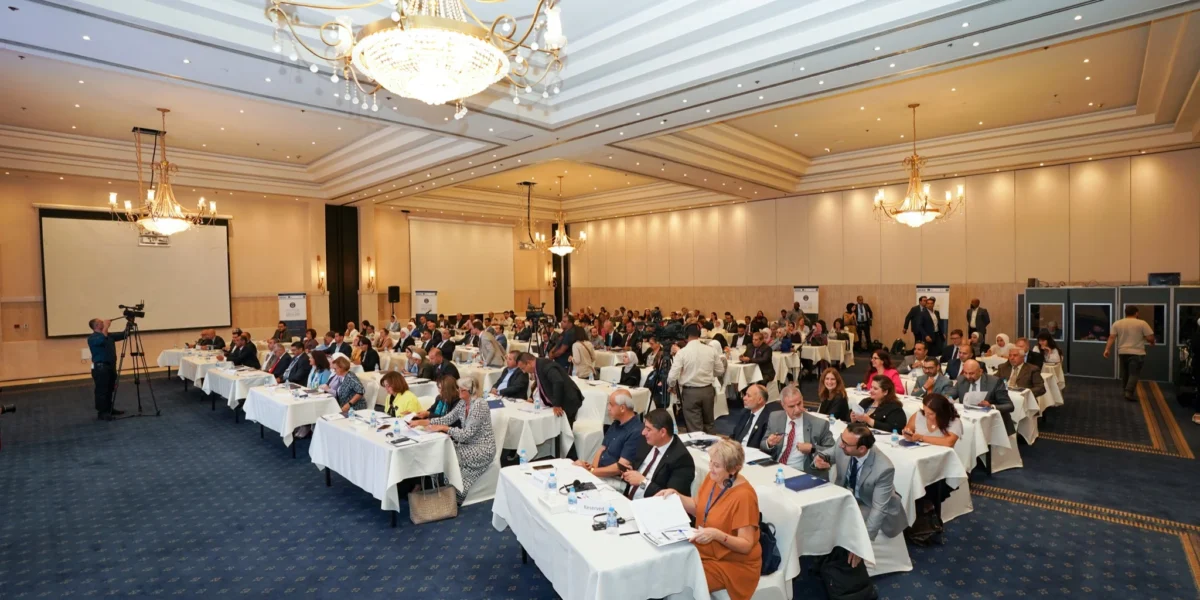The second edition of the Legal Aid Conference, organised by the Justice Centre for Legal Aid (JCLA) took place in Amman on Wednesday.
The conference seeks to provide an opportunity for public and civil society agencies to exchange opinions for regulating legal aid to enhance access to justice.
Attended by Wafaa Bani Mustafa, the Minister of State for Legal Affairs, the conference discussed the requirements for adopting a comprehensive national legal aid strategy, in addition to the principles of the Legal Aid Bylaw in terms of the scope of service provision, types of cases, beneficiaries, eligibility criteria and quality control procedures, according to a JCLA statement.
Bani Mustafa emphasised the government’s commitment to developing the justice system, noting that the rule of law separates conflicts of interest from the protection of rights.
“Dialogue between stakeholders in the justice system contributes to enhancing the protection of the most vulnerable individuals, while also empowering them through the exercise of their rights,” Bani Mustafa said during the conference.
She also highlighted civil society’s role in achieving the sustainable development goals and the protection of human rights by contributing to the promotion of social stability and peace.
Maha Al Khatib, chairman of JCLA’s board of directors, said that the conference is occurring at a time of exceptional regional and global circumstances in the post-pandemic world, stressing that the goal of the conference is “to invite partners to help restore dialogue in the public space to be effective, feasible and professional.”
Khatib mentioned that the JCLA has built a system for service provision, supervision and quality control, adding that the JCLA’s systems are documented, computerised and reproducible, making it an expert in the field of legal aid.
Statistics show that nearly 70 per cent of individuals involved in legal matters attend court without an attorney, and one in five Jordanian families are dealing with a legal issue, Khatib added.
Representative of the Spanish Agency for International Development Cooperation Bella Fernandez said that in order to achieve the desired goals, the justice system must rely on dynamic, governmental and non-governmental partnerships.
She emphasised the need for participatory justice in the justice system to be linked to sustainable development goals, especially the role of law at the national and international levels, in order to ensure universal access to justice.
Resident Representative and Coordinator of UNDP in Jordan Randa Aboul Hosn, indicated that the UN has provided continuous support for rule of law projects in Jordan, including within the field of legal aid.
Aboul Hosn affirmed the commitment of the UN and its institutions to regulate legal aid and legal empowerment for all Jordanians, in addition to enhancing its validity and effectiveness by providing innovative solutions, such as offering electronic services.
The second edition of the Legal Aid Conference is organised with the support of the United Nations Democracy Fund, the Rule of Law project implemented by the Spanish Agency for International Development Cooperation and the support of the European Union.


